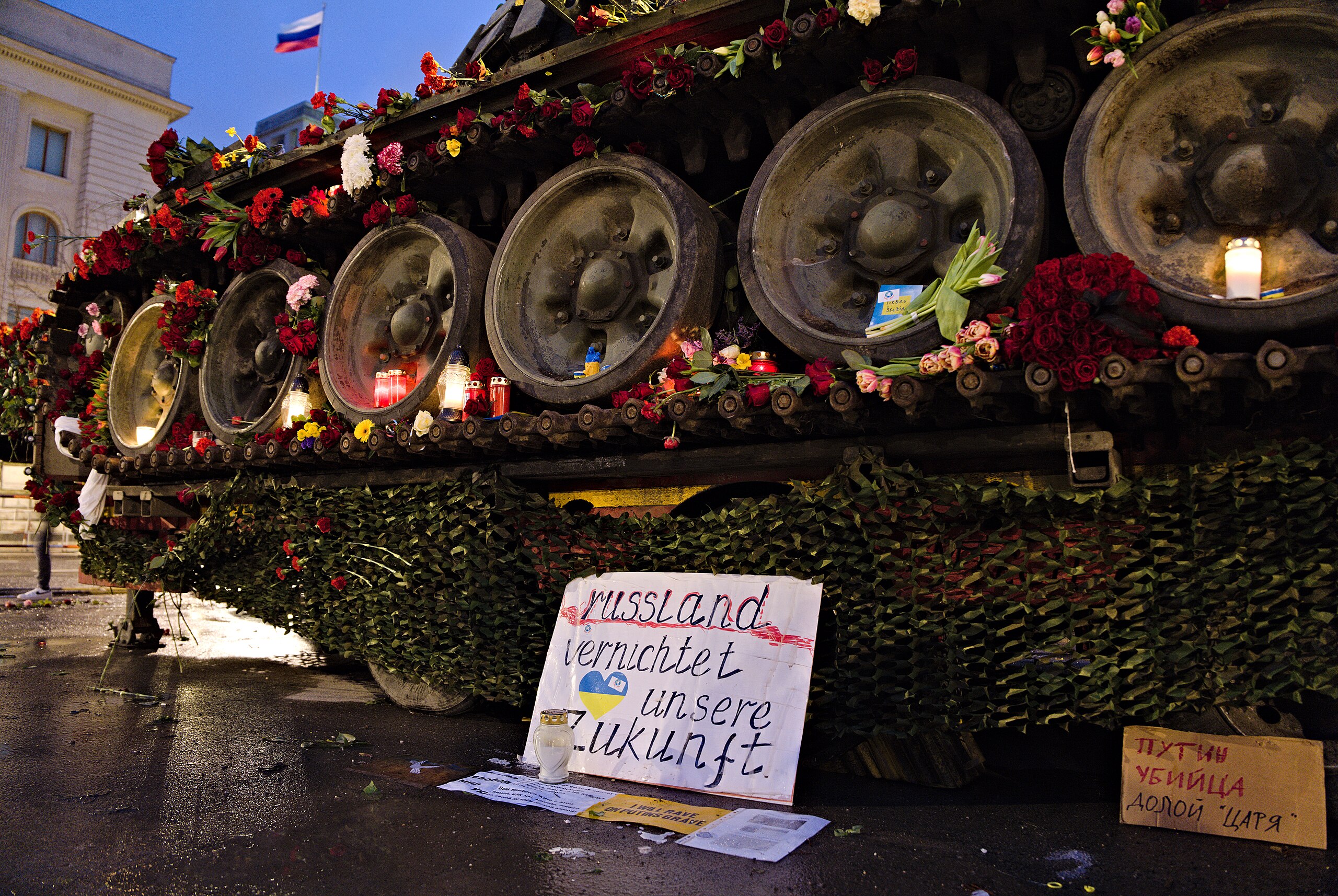As the German government continues to crack down on migration, it suspended the humanitarian visa program aimed to protect politically persecuted people from their home states.
The suspension especially affects Russian dissidents critical of the Kremlin’s politics. According to the Ark Project, which aids anti-war Russians’ emigration, around 300 Russians and Belarusians – civilians, journalists, and activists among them – are affected by the change. These visas had already been approved by the German Foreign Office, but the Ministry of Interior’s policy stopped them before they were issued.
Fleeing the State
German news portal Deutsche Welle has interviewed Alexei Moskalev and his young daughter, Masha. They are one family of many who experienced the Russian state’s hostility towards its own citizens firsthand. In 2022, after 13-year-old Masha drew a mother and child warding off Russian missiles attacking Ukraine, the school administration reported the drawing to the police.
Masha was interviewed by Russia’s domestic intelligence service, the FSB. In 2023, Alexei was found guilty of discrediting the army in anti-war comments and sentenced to two years in prison. His daughter was taken to an orphanage then later given over to her mother, who had been estranged from them for years.
Upon his release in 2024, Alexei feared he would be arrested again. “They always stressed, at the end of our conversation, ‘We’re not going to leave you alone, even after you’re released,'” he said.
Now, the family remains in Armenia, member of the Commonwealth of Independent States, an organization of states once part of the Soviet Union. But, according to Lawyer Anastasia Burakova, founder of the Ark Project, “There’s always the risk of an extradition request from Russia if a person is wanted in a politically motivated case.”
“There are abduction attempts, like those we’ve seen in Armenia, but there are also successful abductions, as in Kyrgyzstan; those people ended up in Russian prisons.”
Visa Applications on Hold
According to the German Federal Ministry of the Interior (BMI), new policies will “end voluntary federal admission programmes as much as possible” under the current government. This means that “admissions under paragraph 22 sentence 2 of the Residence Act, which allows entry for political reasons, are mostly suspended,” according to a BMI spokesperson.
While exceptions do apply to urgent cases, it is not specified what may be classified as ‘urgent’ or an ‘exception.’
All decisions to issue a visa rest with the Ministry, who confirmed they would take no new admissions and issue no new visas.
Outside of the above regulation, Russian residents are still able to seek asylum, but the process remains slow and difficult as the CDU/CSU-SPD coalition continues to tighten migration policies.
While Alexei’s visa was approved, it was never issued.
Anti-Migration but Pro-Ukraine
The decision comes as the government attempts to take control of the most controversial policy area in Germany. As the AfD rises, the Merz-led coalition has been halting asylum applications, family reunifications, and stepping up border controls to seduce voters away from the political party currently deemed to be extremist.
The case of persecuted Russians is at odds with Germany’s strong pro-Ukraine stance providing ample financial, humanitarian, and diplomatic support.
However, this is difficult to translate into ever-polarizing domestic politics. After the apprehension of a Ukrainian suspected of the Nord Stream sabotage, support for Ukraine may be decreased.
Aiding the Moskalev family, non-governmental organization inTransit stated that Germany cannot “simply shift all responsibility for protecting persecuted Russians onto another country, such as France.” France, like most European nations, is also tightening its migration policy, has long waiting times for applicants, and is wary of potential spies; so the organization refuses to search for another host country.
The Ark reports around 2,600 Russians have been granted their visas in Germany since the beginning of the war. Russian human rights organization, Memorial, says there were 1,043 people categorized as prisoners in Russia in August 2025.

